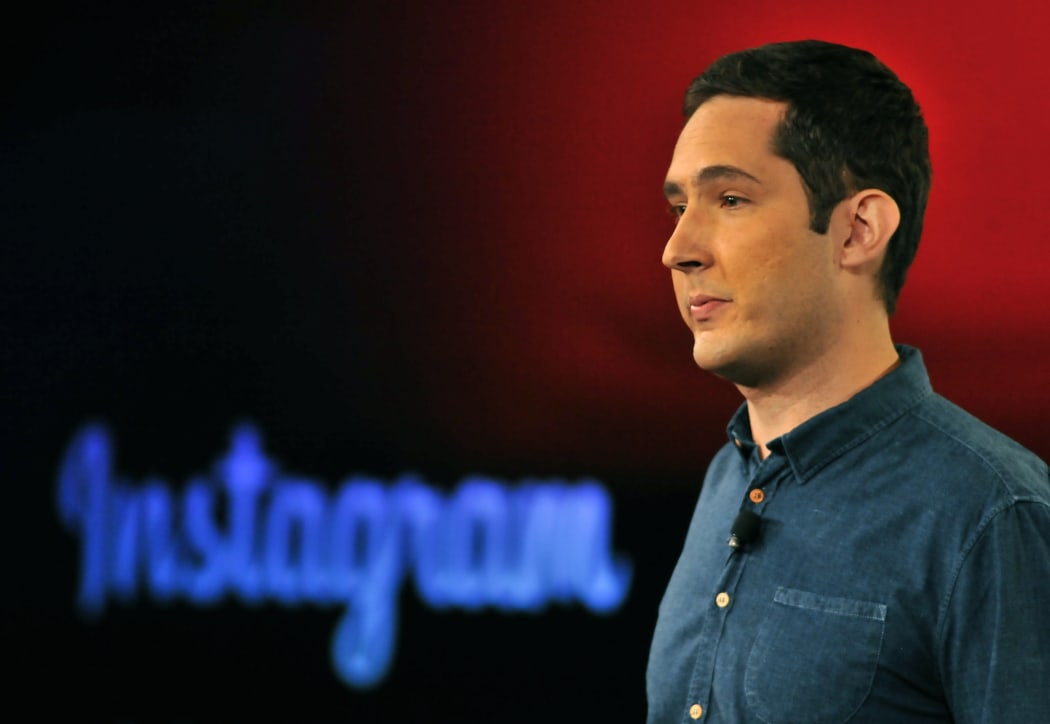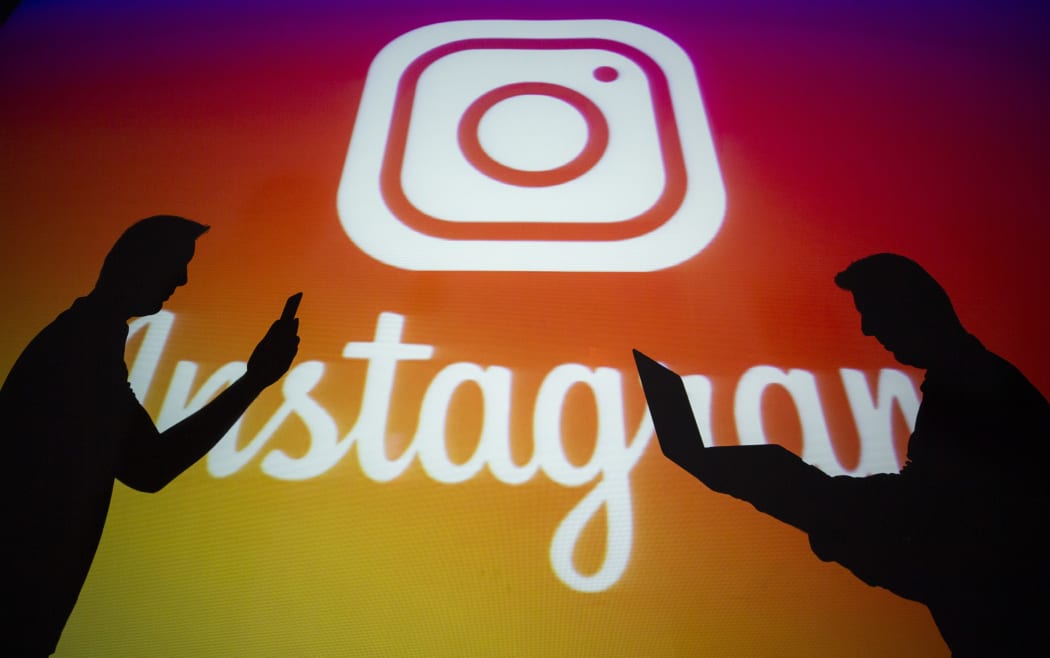As one of the most culturally defining apps of the decade Instagram was not only responsible for a phenomenal rise in visual storytelling - selfies, food shots and travel logs, but also the creation of a multi-billion-dollar industry.
In her new book No Filter: The Inside Story of Instagram, Sarah Frier draws on interviews with the company's founders, Kevin Systrom, and Mike Krieger, as well as with employees, executives, celebrities and tech competitors such as Facebook, which now owns Instagram.
It's incredible to think, Frier says, Instagram was only founded in 2010.

Kevin Systrom Photo: AFP / FILE
“When you look around, as you're walking down the street, as you're watching people celebrate their birthdays, their weddings, their vacations, you can see the impact of Instagram in a way that you can't really see the impact of Facebook and Twitter.”
The company’s cultural impact lies in the way the app was originally designed, she says, because content made by users is not shareable and so it can’t go viral.
“And that's why it became the destination for influencers and brands because people learned how to get better at getting those likes and comments for their own content, and over time, it just became a performance art.”
It was the Instagram filter that was the key to the apps initial popularity, she says.
In the early days Instagram founders Kevin Systrom, and Mike Krieger realised that people didn't feel like they were good at photography on the iPhone, because the iPhone produced images at that time in 2010 that were grainy or out of focus, or with bad lighting.
And what Kevin Systrom did with his background in photography is he created these filters that could immediately turn what you had created on your iPhone into something more resembling art … something that looks more professional.”
Phone cameras have now improved, but the filter’s initial popularity got people used to presenting their content more carefully, Frier says.
“Now we don't need those filters anymore, but we are still editing our content, being very aware of which of our angles work the best, which of our colours work the best. It's given us all this strategic awareness about our online presence. And I think that was just dramatically important and the takeover of Instagram in our culture.”
Instagram co-founder Kevin Systom was a keen photographer and wanted to make an app that made photo sharing easy, after an initial attempt with Bourbon, which never took off, they decided to build an app that was specific for mobile phone.
“They decided to build something that was very native just for mobile phones, because previously everything on mobile, like everything Facebook was doing for example, was just a copycat of what they were doing on desktop computers, but Instagram was much simpler.”
They then encouraged artists and photographers to be early adopters of the app, she says.
“They did is they almost invented the influencer industry before it existed. They would get people to use their app when it was very new, who were artists or creatives, or people with large followings on Twitter and they would invite them to join before regular people had the chance to join.
“And then once everyone started to use Instagram, they would see it as a place for really high quality, really interesting personal content. And that's how we were all taught to use the app is by looking at what those musicians and artists and photographers were doing in the early days.”
As the app took off, Facebook CEO Mark Zuckerberg started to pay attention, Systrom and Krieger initially resisted his overtures but in 2012 agreed to sell.
“Instagram was still so small, they had 13 employees, they had no revenue to speak of, no business model, but they were rapidly increasing the amount of users that were coming to the platform.
They had about 25 million users and they were growing exponentially. And when Zuckerberg decided to offer a billion dollars for Instagram, nobody had ever offered that for a mobile application before. It was unheard of.”
Zuckerberg understood Instagram would continue to grow, and that it would eventually become a threat to Facebook's dominance, she says.
“He is incredibly worried about the fate of Facebook. And so, he knew that he needed to either join with them or crush them. And it wasn't clear that Facebook would be able to crush them, because Facebook was not very good at making applications for mobile phones at that time.”
Systrom and Krieger were at the time grappling with the problems that come with exponential growth, Frier says.
“Facebook actually had the potential to solve a lot of their problems because they had so few employees, they really didn't have a way to serve the mounting demand from people on their servers, on their content moderation on all sorts of aspects with their business.
“They were very crushed by all of the popularity, and so they thought that Facebook would be best served to help them in that regard. But it was a long time before the deal was approved.”
Zuckerberg’s investment was canny, she says.
“Instagram is now worth upwards of $US100 billion per analyst estimates, and contributes $US20 billion of Facebook's 2019 revenue, and it's only going up from there.”
Systrom and Krieger stayed with the company after the purchase, but eventually the relationship soured.
Zuckerberg started to feel paranoid about Instagram’s potential to take attention away from Facebook, she says.

Photo: AFP / Aytac Unal / Anadolu Agency
“He asked the Instagram founders to redirect their users to Facebook, he asked them to increase the amount of advertising that they put into Instagram, he asked them to stop receiving a lot of their resources from Facebook - whether it was headcount for employees or free advertising on the Facebook newsfeed links, he actually cut a lot of those things off.
“And so after a while the founders understood that they were no longer really building a company within a company, this independent entity that Zuckerberg promised they would have. In fact, they were just a mere department of Facebook serving the needs of the larger social network.
That's a very frustrating place for an entrepreneur to be so they left.”

